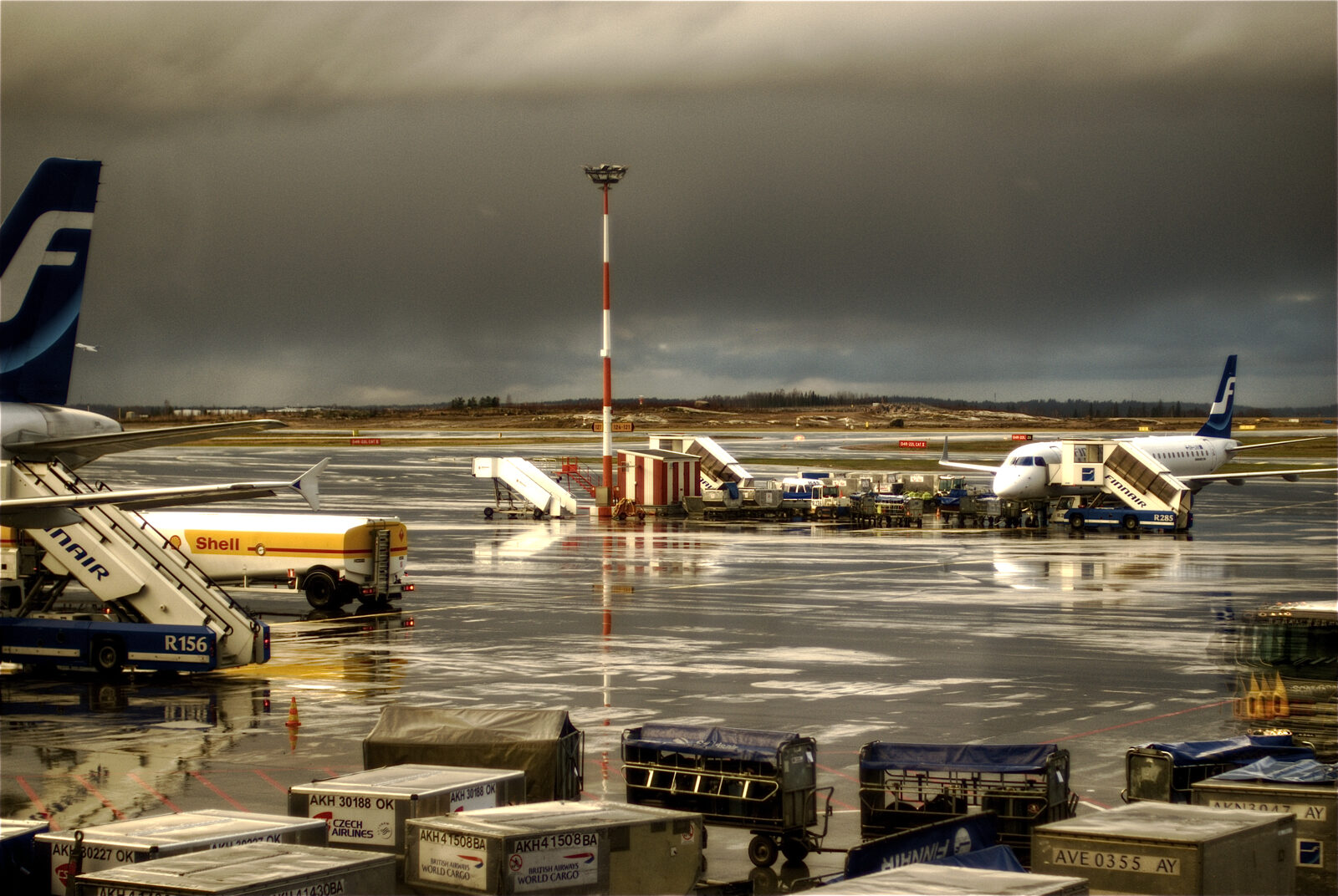The unions in Finland started a two-week labour strike in many of the country’s critical economic sectors against loss of labour rights in law propositions by the government. The export companies are hardest hit, but according to Finnish media, fuel shortages are expected when the strike lasts more than a week.
Featured photo: Helsinki-Vanda International Airport (Photo: Ville Miettinen (CC))
The unions decided not to hit the refineries with the strike, and there are plenty of fuel reserves in the country. But as fuel truck drivers are on strike, the supplies at the sites where the fuel is consumed might end. Petrol station operators say they expect only a few locations might be out of fuel at the end of this week, mostly in the more populated areas. But the situation looks more dire for the aviation industry.
According to Finnish broadcasting company Yle, Helsinki-Vanda IAP might be out of kerosene at the end of the first week of strikes. Finnair and other airlines have directed their plane captains to fuel up abroad, but for long-distance flights these options are limited as there is no fuel station in the skies they can use. The alternatives are likely to land in Estonia, Latvia or Sweden to fuel up.
Harbours, rail and truck cargo
Throughout the country industries and the stream of products are coming to a stand-still, but there are still parts of the hit sectors that operate. Harbours are down for container and bulk handling as handling crews have stopped working, but roll-on roll-off traffic continues. This means trucks loaded with containers can still come in and get out of the country by ship, e.g. to Estonia and Sweden.
Cargo traffic by rail is also affected, meaning the delivery of goods to stores and the transport of containers and bulk over longer distances is not happening at the moment. However, public transport is working as normal. For package delivery of (web) shops, some companies will try the roll-on roll-off ferries, some let their truckers drive through the whole of Sweden to/from mainland Europe, Finnish media report. The costs of many products will likely go up, as the costs of transport of the goods will increase.
Why do the Finnish unions declare a massive strike?
The current two-week industrial and transport strike is not the first in the Scandinavian country this year. At the end of January, public transport, Finnair, day cares and restaurants were on strike. Why?
The unions are unhappy with the Finnish government’s labour “reform” propositions, which in practice means less rights for the workers. The propositions limit secondary benefits, limit the right to strike, limit social security benefits including for the unemployed, and limit salary growth. The Finnish government says the labour law changes are necessary to save the economy and cut 6 billion euros in costs for which there is no money. | © 2024 Marcel Burger, nordicreporter.com
